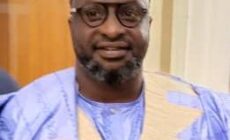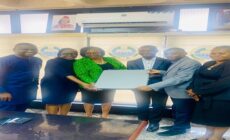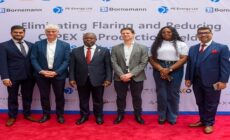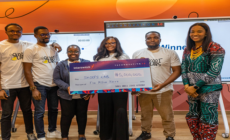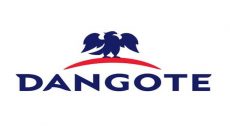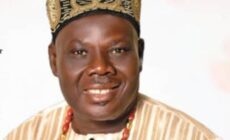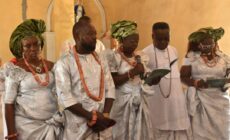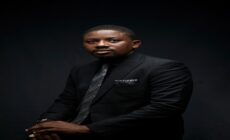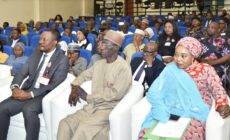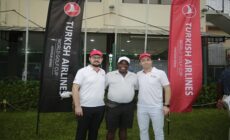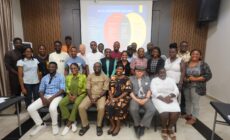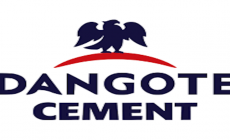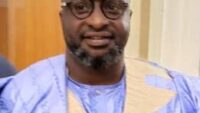TEXT OF SPEECH BY DIRECTOR GENERAL NATIONAL BROADCASTING COMMISSION (NBC), IS’HAQ MODIBBO KAWU, AT THE NATIONAL SUMMIT ON BROADCAST CONTENT AND PEACEFUL COEXISTENCE, ORGANIZED BY THE NATIONAL BROADCASTING COMMISSION (NBC); JOS, PLATEAU STATE;TUESDAY, JULY 18TH, 2017.
PROTOCOLS:
On behalf of the National Broadcasting Commission (NBC), I will like to welcome you all to this year’s National Summit. Let me state just how happy I have always felt to return to this lovely city of Jos, especially in the month of July. The Plateau is in the midst of the rainy season; the veldt is green; weather cold and we get to enjoy the eternal beauty of theremarkable gift of nature to humanity, in this corner of Nigeria. In 1995, during the same time of the year, as now, I was travelling for 25 days in the old tin mining settlements of the Plateau, as a reporter for the African Service of the BBC. My assignment was to record interviews, for the program, AFRICAN PERSPECTIVE, with survivors of the regime of forced labour, which British colonialism had imposed in the Nigerian tin mines, between 1942 and 1944. These were during the years of the Second World War, 1939-1945. The British had lost Malaya to the Japanese, and tin from the Plateau was desperately sought for the war effort. 110, 000 people were drafted for the forced labour regime, from the provinces of Northern Nigeria. Conditions were dire, and 11, 000 people lost their lives in those two years of forced labour!
But why am I recalling those events of over 70 years ago? It is because the roots of some of the problems that would emerge in contradictory, and often tragically violent inter-ethnic, inter-religious relationships in these parts of Nigeria, were sown in the choices which the British colonial administration made at that time. So the deepening of the consciousness of identities; heightened rivalries over resources; manipulation of these rivalries by elite groups in search of power and sinecures; and the ever rising tempo of Hate and Dangerous Speech, have become some of the main elements of the contemporary situation in our country. This is the background to the choice of the city of Jos, and Plateau State, for our Annual Broadcast Content Summit. And the choice of theme this year is also very indicative: “BROADCAST CONTENT AND PEACEFUL COEXISTENCE”.
A few weeks ago, the Speaker of the House of Representatives, HonourableYakubuDogara, lamented that it was “worrisome”, that the Federal Government has deployed the Armed Forces in more than 28 states of the federation. The Honourable Speaker went further to state that: “…it is worrisome that Nigeria is permanently in a state of emergency as the Armed Forces are deployed in more than 28 states of the federation in peacetime”. He added further that “…the Armed Forces have virtually taken over routine Police work in Nigeria. It is no longer acting in aid of civil authorities but has become the civil authority itself”. Back in 2016, a strategic intelligence analysis firm, SBM Intelligence, had also reported that Nigerian military personnel could be found in active deployment “in no fewer than 30 states of the federation”, tackling such internal security threats that ordinarily should have been left to the police and paramilitary agencies.
Those facts about military deployment actually speak to the serious problems we face today. The political economy is in dire straits and there is despair in the land. We are dealing with a restive youth population; where 63% of the population is under the age of 25, and 75% under 35. The economy is not creating the jobs that would absorb these young people, thus leading to an increasingly alienated population of angry youth, who are readily mobilized around politicized identity issues. The result is the deepening of distrust and the breakdown of peaceful co-existence in town and country. The Reverend Father George Ehusani of the Catholic Church, a few years ago, did a study of ethno-religious conflicts in Nigeria. The study pointed out that most of the crises had taken place between 12noon and 6pm! Those were the hours that people would normally be at work. I live in Kaduna, and the city that was once the heart of the biggest textile industry in West Africa, has suffered a frightening de-industrialization. Factories in Kakuri have closed down. But that is the scenario all over Nigeria, but especially here in Northern Nigeria, where we have harvested the breakdown of peaceful co-existence at a most tragic level in the past couple of years.
For us at the National Broadcasting Commission, we have carefully calibrated these developments, especially as they are reflected in the content of programing output in broadcasting. We know just how important broadcast content is, in times of peace and in times of conflict in society. In recent times, there has spiked tendencies towards Hate Speech in Nigerian broadcasting. The height of that, was in the lead to the 2015 General Elections. We were all witnesses to the unprecedented output of Hate materials, especially on television, directed against President Muhammadu Buhari, as the then Opposition Presidential Candidate, on national television. It was because of that, and the danger that Hate and Dangerous Speech portends for the health of society, that the NBC recently commissioned a special study of Hate Speech in Nigeria, the consequences and how to avert its future propagation in Nigerian broadcasting.
For those who remember, Hate Radio had been central to the preparation of the genocide in Rwanda; 800, 000 people were massacred in one of the most atrocious events in Africa in the 20th Century. The Radio-Television LibreDes Mille Collines (RTLMC), was started in 1993. A report about that station said it was “…rowdy and used street language-there were disc jockeys, pop music and phone-ins. Sometimes the announcers were drunk. It was designed to appeal to the unemployed, the delinquents and the gangs of thugs in the militia”. Linda Melvern noted that: “In a largely illiterate population, the radio station soon had a very large audience who found it immensely entertaining”. RTLM had been set up by hard-line Hutu extremists, mostly from northern Rwanda; and these were mainly wealthy businessmen, government ministers and even relatives of the country’s President. Amongst its backers were directors of two African banks and the vice-president of the Interahamwe militia, that went on to systematically organize and execute the Rwanda Genocide! One of the notorious slogans broadcast on the radio during the genocide was: “THE GRAVES ARE NOT YET FULL”!
It is important to recall the tragic use of broadcasting to prepare and encourage genocide in Rwanda, because of the danger that we face in our country today. The breakdown of inter-communal relationships in several parts of our country, can be dangerously exacerbated, if we allow the systematic use of broadcasting to preach Hate. That is why the NBC carries out a round-the-clock monitoring of broadcast content all over Nigeria. And it is also the imperative for our licensees to be guided on the straight and narrow path, defined by the Nigeria Broadcasting Code. We have noted trends towards an irresponsible use of Nigerian broadcasting airwaves in recent months for the purveying of hate; the heating up of the polity, and even the propagation of secessionist propaganda. There are political forces, still smarting from the loss of the 2015 elections that hide behind the freedoms guaranteed by the Nigerian Constitution, to purvey anti-national agendas. Many broadcasters do not understand how to professionally walk the fine line between libel and free speech; while the phone-in format has been persistently abused on several radio stations. Some On-Air-Personalities (as they call themselves today) who enjoy listening to the sound of their own voices, assume that they have the liberty to say pretty much, what catches their fancy; deluded that they are very popular and therefore have an immunity from the Nigeria Broadcasting Code. The issues are many! Let me point out here, that there is no radio or television station that is too small or too big to be sanctioned. And there is no broadcasting outfit that we cannot rescind its license. Broadcasting licenses are permanently provisional. Where there is a persistent violation of the Nigeria Broadcasting Code, especially, in respect to Hate Speech, that can disrupt the good order of Nigeria, NBC has the power to close down such stations! No broadcasting outfit is more important than our country itself. Those of us in broadcasting carry a major responsibility to assist the entrenchment of peaceful co-existence in our country. Broadcasting can be a major instrument of helping people in communities to appreciate the advantages of good neighbourliness; the values of diversity as well as the mutual respect that should underline the building of a multi-identity country. These are some of the reasons that we have selected the theme for this year’s Summit.
We have also selected a veteran of our industry, Doctor. TonnieIredia as Guest Speaker. Dr.Iredia needs no introduction to Nigerians, because of the work he has done in Nigerian broadcasting for decades. He is also a lawyer and writes a weekly column for Nigerian newspapers. I worked very closely with Doctor Iredia, in 2013-2014, helping to establish Jigawa State Television. I have no doubts in my mind that we made a very informed choice. Similarly, we have brought together an outstanding cast of panellists, that would help us deepen our appreciation of issues of Broadcast Content and Peaceful Co-existence in Nigeria today. And we need to peacefully co-exist in order to build this truly beautiful country, which has tremendous possibilities for development as well as liberation. Platforms that can redound to the benefit of all Nigerians!
Welcome to Jos and this year’s Summit on Broadcast Content and Peaceful Co-existence. Thank You Very Much for Your Attention!



